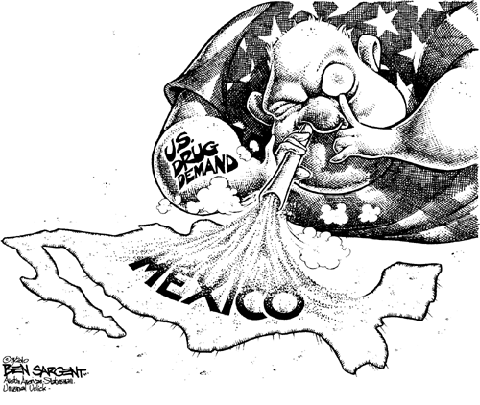
The ISN’s Editorial Plan coverage of increased global interdependence provides an opportunity to take a look at the Mexican drug cartels and their security threat beyond the country’s borders. Only last month, Mexican marines arrested five suspected members of Los Zetas, one of the two most powerful and dangerous cartels that dominate the Mexican drug war. However, enthusiasm about this remains dampened since success in capturing or killing high-ranked drug traffickers hasn’t had any effect on the level of violence in the country.
When President Felipe Calderon took office in 2006, he announced an aggressive military–led strategy against the drug cartels, totally in line with the American declared “war on drugs”. The extensive use of military forces to support the weak police system has however caused a rise in the number of reported human rights violations committed by the army and led to an increasingly violent war, which has resulted in an estimated 45,000 of deaths since 2006.
Many Mexicans have come to believe that Calderon has lost the fight against the cartels. The consequences of this are tremendous for the Mexican society and state. But as we now, transnational organized crime has also broader effects across countries. The United State particularly suffers from the increased power of the drug cartels in Mexico. A weakened Mexican state facilitates not only the flow of drugs, but also of weapons, money and illegal immigrants, which makes it more difficult for the US to control the border.


